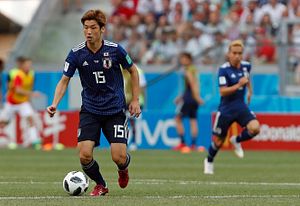On Thursday, Japan took on Poland in their last group match in the 2018 FIFA World Cup. Despite losing 0 – 1, Japan squeaked through to the knockout stage thanks to Senegal’s loss to Colombia. Japan became one of two teams from Group H to advance, slashing Senegal’s World Cup dreams, based on a new tie-breaker system.
Then Group H’s top two candidates, Japan and Senegal had an amicable 2 – 2 draw last Sunday, ending the game in high spirits after a touch and go match. Senegal initially looked to win but Japan came from behind twice, with a goal by World Cup veteran Keisuke Honda allowing Japan to keep its World Cup dreams alive.
However, on Thursday, Senegal and Japan lost against Colombia and Poland, respectively, in simultaneous matches. That meant Colombia would advance to the next stage on the top of the group, and second place would be determined by a tie-breaker. With Japan and Senegal tied in terms of points, goals scored, and goal differential, Japan was given the nod forward by virtue of having fewer infractions during the group stage. Japan was given three yellow cards while Senegal received five.
Knowing that its spot would be assured thanks to the “fair play” decider, Japan has been heavily criticized for making an “unfair” tactical decision to stall in the final 10 minutes of the match by hogging and passing the ball between teammates to settle on a 1-0 loss. The frustrating final moments were a major turnoff, where the pace of the game was reduced to walking speed, prompting spectators to boo and jeer players off the pitch. Even the referee signaled for Japan to pick up the pace and attack.
Japan’s advance at the expense of Senegal has been called out on social media as a embarrassing show of sportsmanship. Japan was aware of Senegal’s losing score against Colombia and took advantage of the situation to prevent Poland from gaining access to the ball and scoring — one more goal against Japan would have let Senegal advance instead.
In Japan, football fans are feeling mixed emotions. While thrilled to secure a spot in the round of 16 — an achievement not seen since 2010 — the match against Poland was a disappointing anticlimax to what, until now, had been a nail-biting mix of blunders and high-skill performance.
During a press conference after the game, coach Akira Nishino had trouble justifying the strategic move, calling it the “ultimate decision.” He later publicly apologized to the team for subjecting them to booing, also taking responsibility for the unpopular decision to slow the game down. Senegal filed a complaint requesting a formal review of the “fair play” rule, but World Cup Chief Executive Collin Smith said that while it was the first time the new tie-breaker rule was applied to a senior World Cup match, there were no immediate plans to revise it.
Japanese cabinet members praised Japan’s success into the final 16 as being acceptable within the scope of World Cup rules. But for football fans, the win remains a bittersweet victory.

































